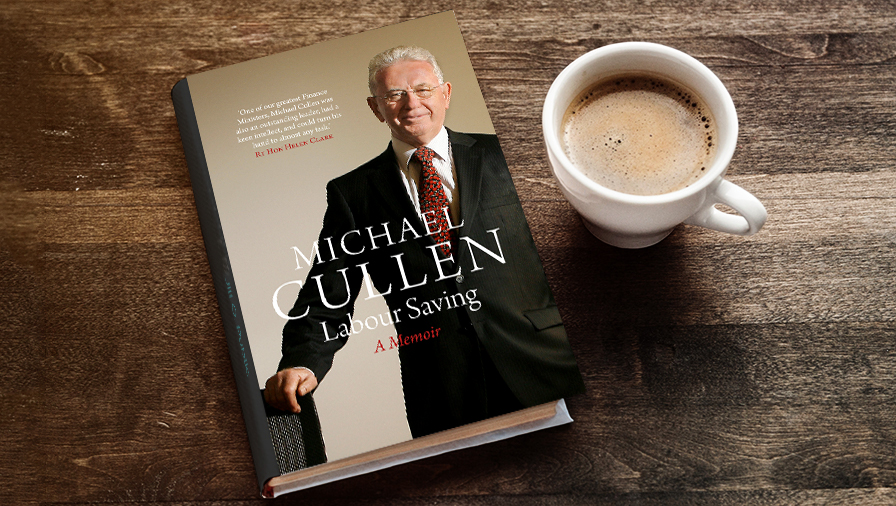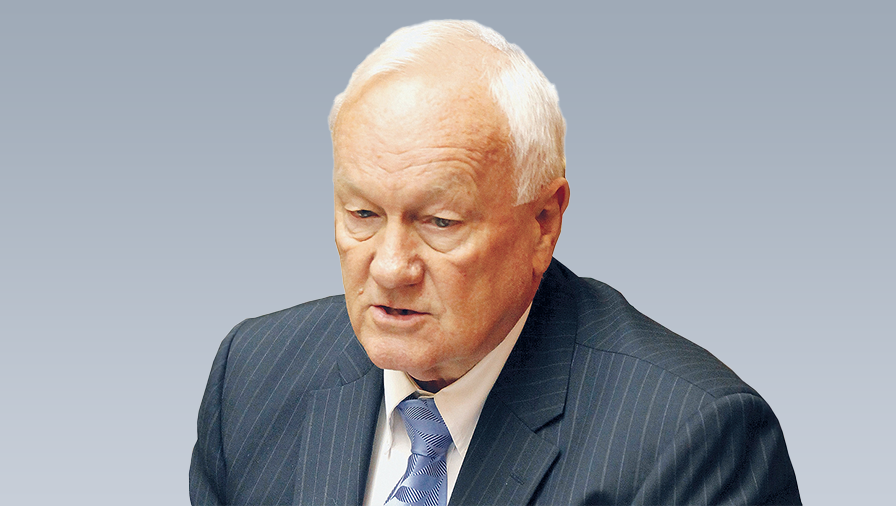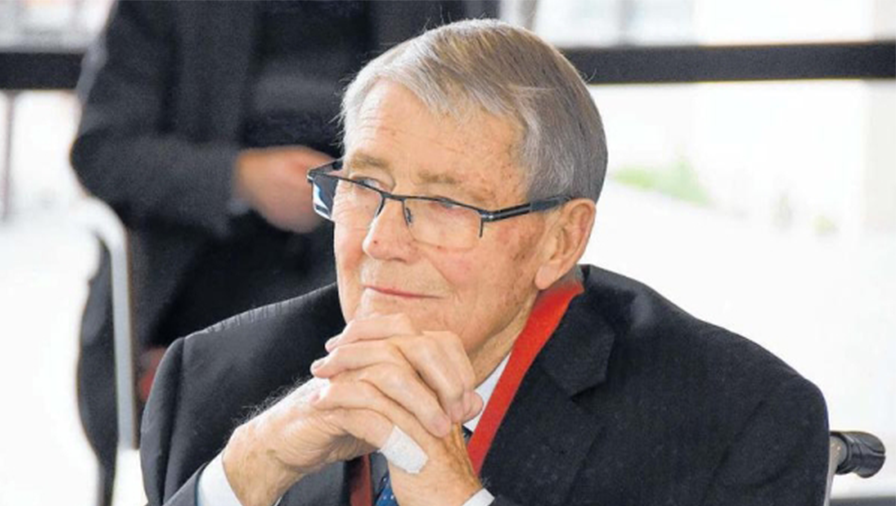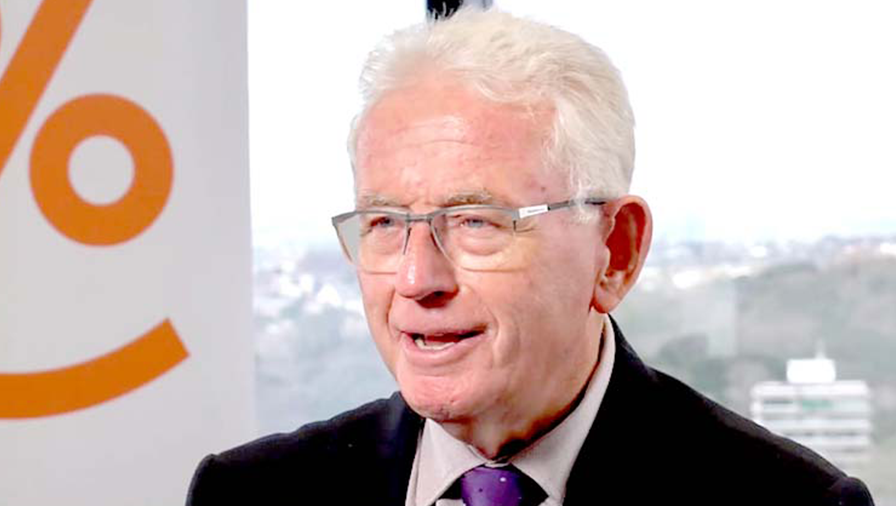The man who ‘saved’ Labour
Book Review: Michael Cullen’s insider account of his 48 years in public life.
Book Review: Michael Cullen’s insider account of his 48 years in public life.
The motives for political autobiographies are clear, whether justification of a career or promotion of one to come. Whether readers agree is another matter.
Publishers fawn over American politicians who want to rule the world. In New Zealand, such books are more likely to be loss leaders.
The list of Kiwi political bestsellers is not long and it takes a rare personality to generate sales.
Two that come to mind are Sir Robert Muldoon and Jacinda Ardern. Most would not satisfy discerning historians, who prefer fact-filled reminiscences and the occasional behind-the-scenes revelation.
Serious biographies of Muldoon and Norman Kirk have been supplemented by lesser ones on Helen Clark, Jim Bolger and John Key. Michael Bassett is by far the most productive as both historian and practitioner.
Coming in at this level is Michael Cullen’s Saving Labour, a detailed 432-page account of his 28 years in politics – a third of it as minister of finance and six years as deputy prime minister – and the 12 years since his retirement.

As befits an economic historian, it is strictly chronological, beginning, “I was born…on February 5, 1945” and continuing until he started this memoir. The approach is not modest and nor does Cullen resile from how he was successful in reversing Labour from its 1980s heresies and providing a foundation for its periods in power.
The formative years
Cullen was 10 when he emigrated from the UK in 1955 with his parents and a sister to Christchurch. His mother Marion had ambitions for her son and he rewarded her by winning a scholarship to Christ’s College.
The nerdy mathematically minded boy did not suit a school that valued rugby more than study, a fact confirmed by fellow pupil and historian Jock Phillips, the subject of this column a few weeks ago.
Neither was attracted to the radical politics of the mid-1960s. At the University of Canterbury, Cullen preferred the Socratic and Student Christian societies rather than the New Left Club. Like the brightest students of their day, Cullen and Phillips left for overseas studies after their graduation.
While Phillips headed to the ferment of US, the now-married Cullen and his wife, Rowena Knight, an English honours graduate, went to staid Edinburgh. On their return, they settled into academic life in Dunedin, where politics soon intruded.
The safe Labour seat of St Kilda became vacant and Cullen was elected in 1981. The Labour Party was evolving from a union-based organisation to one run by middle-class academics.
Cullen lacked a union base and had the same profile as the Auckland-based heavyweights such as David Lange, Michael Bassett, Roger Douglas, Richard Prebble, Phil Goff and Helen Clark, as well as Geoffrey Palmer and David Caygill in Christchurch. But Cullen remained aligned with the conservative wing represented by Stan Rodger, another Dunedinite and public service union leader.

Fourth Labour government
In 1984, Labour was swept into power in Cullen’s second term. His first cabinet post was social welfare, with an associate role in finance. But, under Douglas, he was largely side-lined from the inner circle.
Cullen was never a believer in monetarism or market-led Rogernomics. He spends a lot of time outlining his disagreement with neoliberal economics, which then pervaded the Treasury. As he tells it, Douglas had no coherent philosophy but was adept at picking up ideas and running with them.
Douglas nearly didn’t stand again in 1981 and Cullen wonders what Labour’s reforms after 1984 would have been under the more moderate Caygill, with more attention paid to the social costs.
Cullen supported the rolling back of the Muldoon government’s protectionism and subsidies, greater efficiency in the public service, and putting the economy on a more sustainable footing. Throughout the 1970s, primary and secondary industries were subsidising each other through government policies that supported both farmers and manufacturers.
Though the fourth Labour government collapsed due to internal conflict, Cullen is proud of its legacy: responsible financial management, Reserve Bank independence, a Bill of Rights, resource management legislation, reforms in education and health, and changes to state sector and local government organisation. Most, he argues, were nothing to do with neoliberalism and have stood the test of time.
Opposition to Douglas
Cullen remains bitter about Douglas’s push for a ‘flat tax’ and his contribution to Lange’s resignation. Most of the Labour caucus understood little about economic history and had been “dazzled” by the mantra of TINA (there is no alternative): “[It] was always the child of that all-too-often toxic relationship between ideological extremism and intellectual credulity.”
Cullen’s own record was disappointing, as his plans to reform social welfare, National Superannuation, ACC, and Māori development did not survive the 1990 election. Those would have to wait until the end of three terms of National government.
Meanwhile, as Labour faced nine years in opposition, Cullen had moved on in his private life. An affair with fellow MP Anne Collins (previously Fraser) broke two marriages but resulted in their own in 1989 and Collins not seeking re-election in 1990.
Though Cullen largely spent his political life in the public gaze, he avoided any hint of scandal and describes his second marriage as one of lasting happiness. Occasional progress reports are dropped into the chronological record: his break with Dunedin from the 1999 election, when he went on the party list; a period of residence in Hawke’s Bay; and finally, the move to Port Ohope, where some strenuous work on a retaining wall revealed the beginning of serious health issues that affected his life after his retirement from Parliament in 2009.
Years in opposition
Cullen assumed the finance spokesperson role in 1991 after Labour’s electoral thrashing in 1990. It began to jettison its Rogernomics legacy despite the 1990s proving to be a period of economic recovery. It helped National through three terms, while the introduction of MMP fragmented the political landscape.
Labour’s much-reduced team hadn’t weakened the Auckland academics’ control and Cullen sided with Moore in an unsuccessful challenge to Clark. However, she concurred with Cullen’s call for more orthodox Labour views on economic issues.
He became deputy leader in 1996, saying Labour was neither captured by “the so-called ‘market’” nor supported the closed, highly regulated economy favoured by the Alliance’s Jim Anderton or New Zealand First’s Winston Peters.

Cullen believes Labour “dodged a bullet” when Peters went with National in the first MMP government, describing his negotiating tactics as like playing poker without ever putting down a hand. Peters cops further criticism for treating MMP agreements like a shopping list of demands, a contrast to how other parties behaved and a tactic he revived with Ardern in 2017.
Nine years in government
Cullen’s legacy, of course, is Labour’s three-term government from 1999-2008, a period of greater prosperity than the preceding government and punctuated by few major crises. The country’s finances were healthy – Cullen’s first budget produced a surplus, as did all his others, sometimes embarrassingly so.
Unfulfilled reforms were revived and some of National’s policies were reversed. These included ACC changes, a softening of employment law and the launch of three long-lasting projects: the NZ Superannuation Fund, KiwiSaver, and Anderton’s Kiwibank. Some took more than a term to execute.
Labour’s rejection of its Rogernomic privatisations was reinforced by the need to renationalise Air New Zealand and TranzRail (now KiwiRail). In the second term, earlier building codes changes resulted in the expensive leaky homes fiasco, and Labour faced controversies ranging from deep-seated Māori grievance issues (the seabed and foreshore) to minor beat-ups such as Corngate (“a coverup that was as convincing as an Italian beach bikini”).
Labour was still cruising in the polls until late in its third term, with the generous Working for Families income support scheme and New Zealand ranked by the World Bank as the world’s best environment for doing business.
Opposition to tax cuts
Not that Cullen had any experience or liking for private enterprise. His opposition to lower taxation despite huge surpluses rankled with business and economic commentators. Eventually, Cullen concedes, the public became bored with a government that in 2006 for the first time had more assets than liabilities and, in 2009, was only just beginning to feel the effects of the global financial crisis.
In that year’s election, Cullen says, John Key was a “non-scary” alternative. While the Key government had a continued run of prosperity, it also faced the triple whammy of the GFC fallout, and the Canterbury and Kaikoura earthquakes.
By then Cullen, who retired from politics in April 2009, was aged 64 and already being tapped by Key for public sector appointments, the most notable being the successor to Labour-appointed Jim Bolger as chair of NZ Post.

After Parliament, Cullen deepened his involvement in Treaty of Waitangi settlements, in which he had been a minister before advising claimants. He was kept busy in a number of legislative reviews for both National and Labour governments until ill-health prompted him to start this memoir in 2020 as “a form of therapy for my feelings of loss at no longer contributing to public life in the way I had been used to…”
On balance, the country is better off from Cullen’s dedication to public service. Even compared with prime ministers of the time, he could be regarded as the most widely admired politician. It can also be said Cullen achieved this without rancour or regret, though many who are the subjects of his acid wit may disagree. He leaves an enviable legacy for others who might want to emulate him.
Labour Saving: A memoir, by Michael Cullen (Allen & Unwin).
Nevil Gibson is a former editor at large for NBR. He has contributed film and book reviews to various publications.
This is supplied content and not commissioned or paid for by NBR.